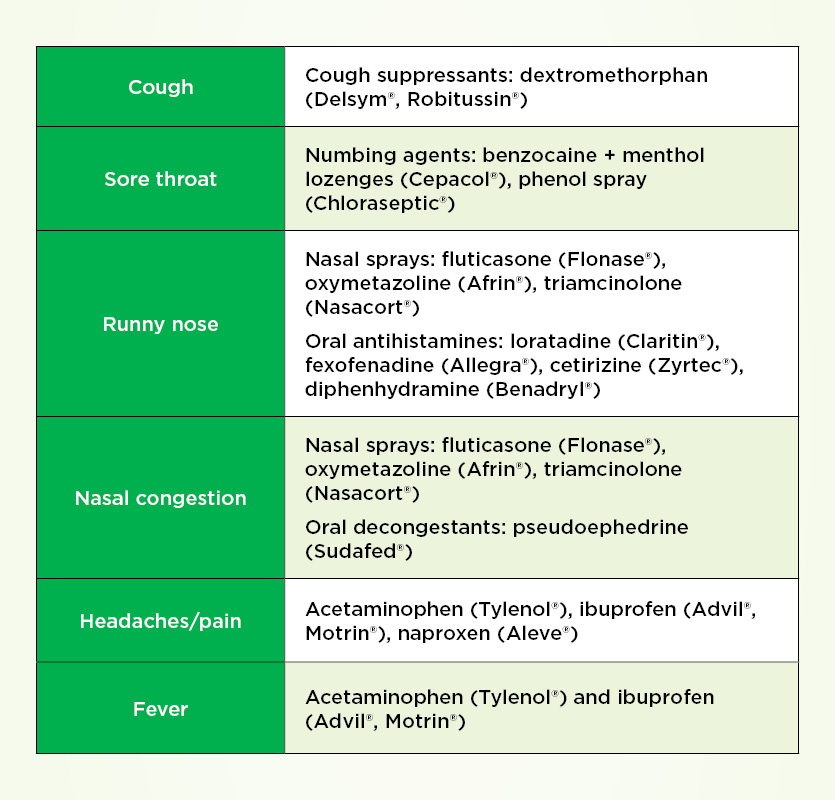
This post was written by Kristin Lytal, PharmD, MSPGx, Parkview Health.
We’re all too familiar with the illnesses that often accompany the winter months. The symptoms can be unpleasant and aggravating when relief isn’t found. We have put together your guide to relief for this season.
What are common cold and flu symptoms?
Bothersome cold and flu symptoms include cough, sore throat, runny and/or stuffy nose, headaches, and facial pain from congestion. It’s also common to experience fever (temperature > 100.4°F), fatigue and body aches as well. Some of these symptoms may require further medical attention if they don’t go away with home treatment.
What medicines can help control my symptoms?
There are many over-the-counter (OTC) medicines that can be used to help control cold and flu symptoms. However, some of these medications may not be safe in certain disease states and populations. Please talk to your pharmacist or provider before taking any of these medications.
Here is a chart of OTC medications that can help with various symptoms. Medications are listed with both brand and generic names. Brand names are in parentheses.

When should I seek medical attention?
Over-the-counter medications are only intended to relieve symptoms but are not intended to cure the underlying cause of your illness. Cold and flu symptoms can be caused by viral and bacterial organisms, some of which may require treatment with an antiviral or antibiotic.
Contact your provider if symptoms last longer than 10 days, if they’re getting worse or if you have a fever that lasts more than two days. If you need help scheduling an appointment or establishing care with a provider, our Access Center can help. Call any time, at 877-PPG-TODAY or 877-774-8632 for assistance. You can also explore our virtual care options here.



